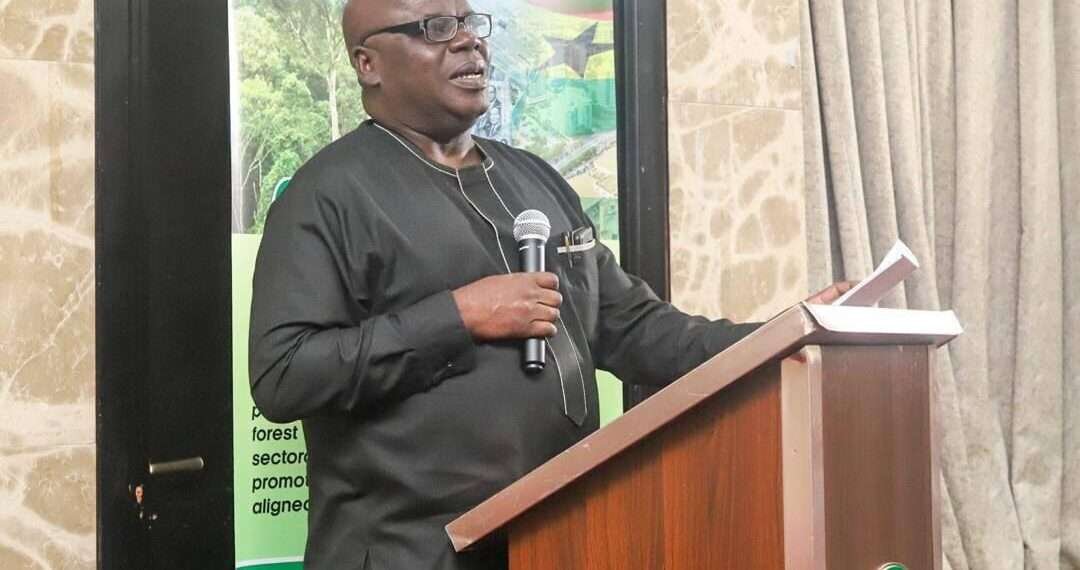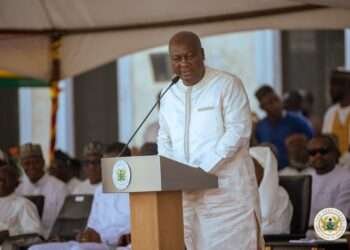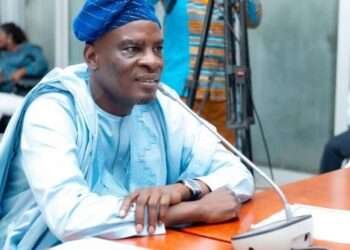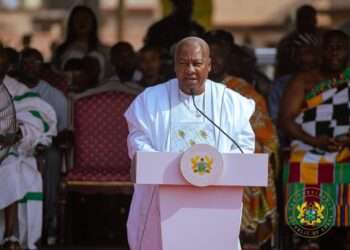The Chief Director for the Ministry of Lands and Natural Resources, Professor Patrick Agbesinyale, has called on experts, policymakers, and stakeholders from various sectors to address significant gaps in data collection and reporting that have led to the underrepresentation of Ghana’s forest sector in the nation’s economic assessments.
Professor Agbesinyale delivered these remarks on behalf of the Sector Minister, Hon. Samuel A. Jinapor, during a Policy Dialogue on Economic Contribution and Sectoral Linkages of the Forestry Sector to the National Economy.
The event, held under the theme “Promoting Sustainable Forest-Based Industries in Ghana,” brought together a diverse group of stakeholders, including government officials, industry leaders, and environmental experts, to discuss the critical role of forests in Ghana’s economic and social well-being.
In his address, Professor Agbesinyale highlighted the numerous benefits that forests provide to Ghana’s economy and societal well-being.
Professor Agbesinyale underscored that forests are a source of livelihoods for millions of Ghanaians, particularly in rural areas, where they offer resources such as timber, non-timber forest products, and employment opportunities.
Moreover, Professor Agbesinyale noted forests play a crucial role in environmental protection, acting as carbon sinks that mitigate climate change, preserving biodiversity, and maintaining the ecological balance essential for agriculture and water resources.
“Despite all these economic gains, the forest sector remains underappreciated in national accounting and policy frameworks due to the challenges in quantifying its contributions.
“The forest sector is often overshadowed by other industries when discussing national economic performance, yet its impact is profound and far-reaching.”
Professor Patrick Agbesinyale, Chief Director for the Ministry of Lands and Natural Resources
Professor Agbesinyale reiterated the Ministry’s commitment to working with all relevant stakeholders to ensure that Ghana’s forestry sector receives the recognition it deserves in national economic assessments.
“Our forests are a national treasure, and it is our collective responsibility to ensure that their value is fully realized for the benefit of current and future generations,” Professor Agbesinyale stated.
Challenges in Data Collection and Reporting
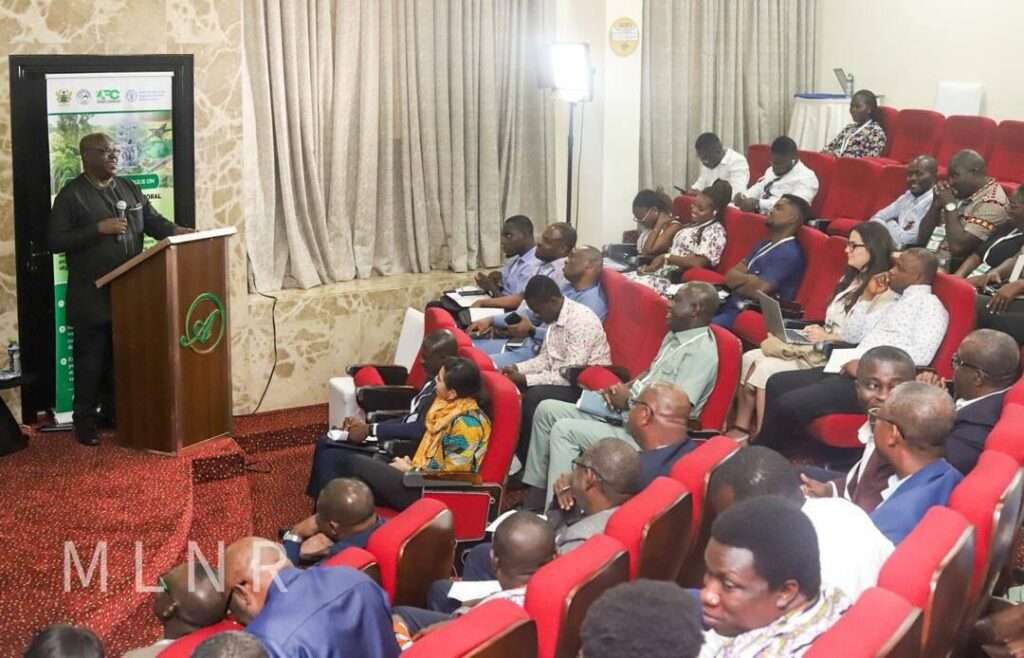
One of the central issues raised by Professor Agbesinyale was the inadequacy of data collection and reporting mechanisms within the forestry sector. He pointed out that the current methods are insufficient to capture the full spectrum of the sector’s contributions to the economy.
This deficiency, Professor Agbesinyale explained, results in an incomplete picture of the sector’s role in national development, leading to its marginalization in policy-making and economic planning.
The Chief Director called on all stakeholders to focus on actionable recommendations that will not only strengthen the forest sector but also contribute to broader goals such as climate resilience, poverty reduction, food security, equitable sharing of forest benefits, and addressing the major drivers of deforestation and forest degradation.
Professor Agbesinyale emphasized that a more robust data collection framework would enable better integration of the forestry sector into national economic assessments, thereby facilitating more informed decision-making.
International Perspectives and Calls to Action

The dialogue also featured contributions from international experts, including Ms. Thais Linhares Juvenal, Senior Forestry Officer at the Food and Agriculture Organization (FAO).
Addressing the participants virtually, Ms. Juvenal echoed Professor Agbesinyale’s concerns and stressed the urgent need to combat the climate emergency through enhanced efforts in mitigating carbon emissions and promoting sustainable forest management practices.
Ms. Juvenal highlighted that forests are not only critical for biodiversity and climate regulation but also for income distribution and social equity. She pointed out that improving data collection and analysis is essential to fully explore the opportunities created by economic linkages within the forestry sector.
“We must ensure that the economic contributions of forests are fully recognized and that the benefits are equitably distributed among all stakeholders, particularly those who are most dependent on forest resources.”
Ms. Thais Linhares Juvenal, Senior Forestry Officer at the Food and Agriculture Organization (FAO)
The policy dialogue concluded with a consensus on the need for immediate action to enhance data collection and reporting in the forestry sector. Participants called for the development of a comprehensive framework that would standardize data collection processes across the country, ensuring consistency and accuracy in reporting.
This framework, they suggested, should involve collaboration between government agencies, research institutions, and local communities, leveraging technology and innovation to overcome existing challenges.
This policy dialogue marked a significant step towards achieving that goal, setting the stage for more informed and sustainable management of Ghana’s forest resources.
READ ALSO: NewGold ETF Gains Over 74% YTD Despite Minor Price Dip on GSE

